Services & Specialities
All children are different and develop at their own pace, but when you feel like you’ve tried everything to encourage your child’s growth and don’t know what else to do, it may be time for a little extra help. That’s where we come in.
Individual Therapy
Virtual Consultations
Speech Therapy
Developmental Therapy
Feeding Therapy
Occupational Therapy
PLAY Project/Autism
Physical Therapy
Individual Therapy
We are currently available for in-clinic sessions, in-home sessions, community based sessions or via Telehealth on Zoom.
We bill insurance (benefit check included) or offer private pay rates. Shine is currently in-network with Blue Cross Blue Shield PPO and CAT United for speech and feeding. Other insurances are billed as out-of-network. We are unable to bill HMO plans. FSA and HSA cards accepted.
Virtual Consultations
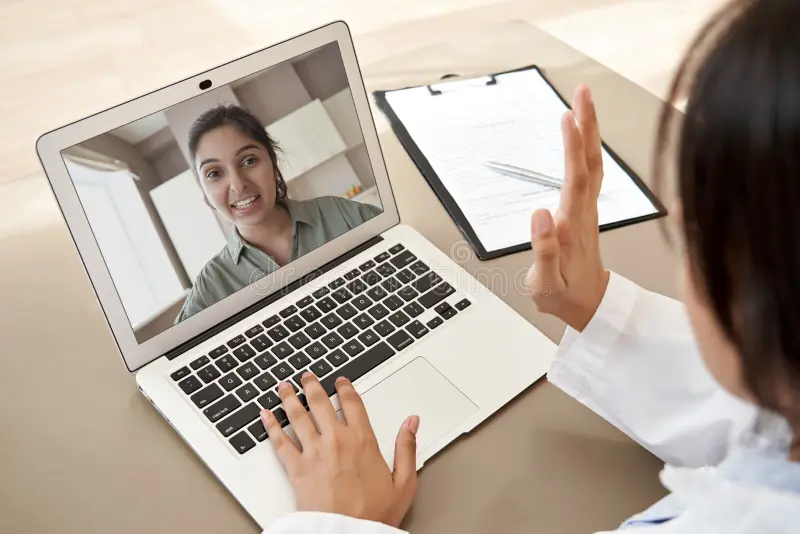
Time Required: 20-30 minutes
Cost: $25 due at the time of sign up in order to hold your chosen time.
Online Parent Consultation through Zoom:
- You will be connected with our developmental specialist/speech-language pathologist & owner of Shine, Sarah Ziemba. Sarah has worked with children age birth-5 throughout her 20+ year career.
- Your child does NOT have to be present for this option (but are certainly welcome!)
- We will discuss your concerns about your child. Sarah will then offer possible options to help.
- Options may include a referral for services provided at Shine, but if we don’t have what’s needed then we will gladly refer you to other local resources.
Speech Therapy
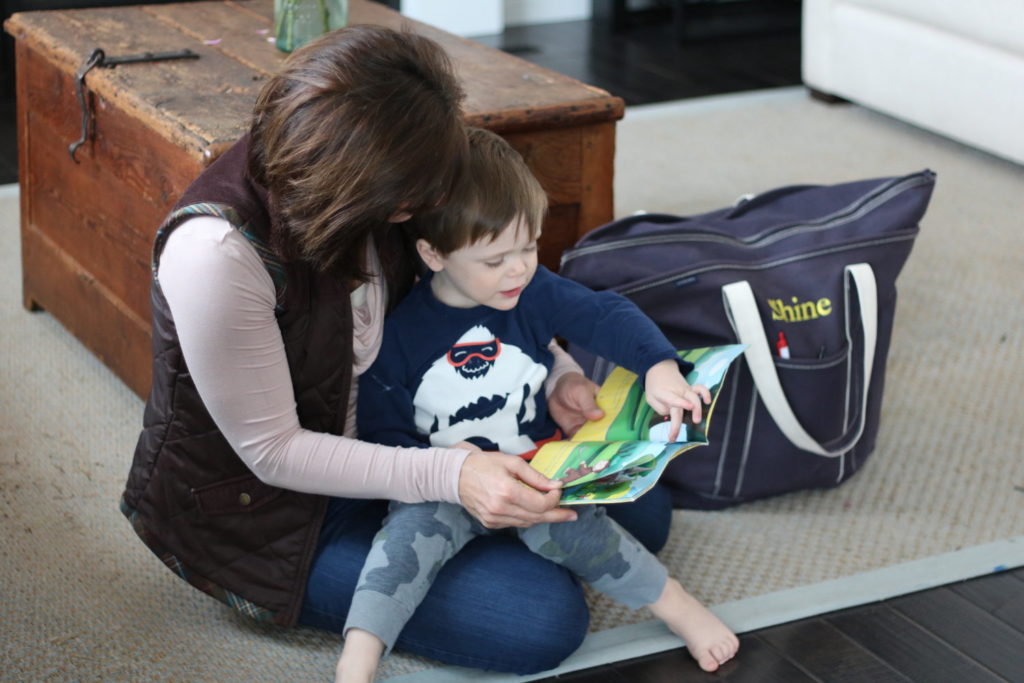
What is Pediatric Speech-Language Therapy?
Speech-Language therapy is provided by a licensed Speech-Language Pathologist (SLP) who is trained in evaluation and treatment for a wide range of speech and language delays and deficits. Speech-language therapy works to improve a child’s ability to understand language and/or to express daily wants, needs and feelings. Areas that can be addressed in speech-language therapy include:
- Language Comprehension (understanding of language),
- Language Expression (using words or other methods to express wants, needs and feelings),
- Speech Production (successfully producing speech sounds to build words and sentences)
- Social/Pragmatic Language (communicating for the purpose of socially interacting with others).
Why Might My Child Need Speech-Language Therapy?
Speech-Language Pathologists evaluate and treat a number of different language comprehension, language expression and speech production issues which can be present alone or in conjunction with a specific diagnosis. However, because we see young children at Shine, they often have no medical diagnosis. Some Common Diagnoses include:
- Developmental Delays or Disabilities
- Phonological or Articulation Deficits
- Autism Spectrum Disorders
- Congenital Syndromes (eg. Down Syndrome, Cleft Lip & Palate)
- Neurological Disorders (eg. Cerebral Palsy, Traumatic Brain Injuries)
- Motor Disorders (eg. Dysarthria, Apraxia of Speech)
- Speech Fluency Disorders
Language comprehension refers to a child’s ability to understand verbal (or written) language. Delays or deficits in language comprehension could interfere with a child’s ability to follow directions, make choices, answer questions, and learn new skills.
Language expression refers to a child’s ability to express their wants, needs and feelings. There are a number of different ways to express oneself including verbally, gesturally, or using sign language or another Augmentative/Alternative Communication (AAC) method, (eg. picture exchange or pointing, speech generating device).
Speech production refers to a child’s ability to produce clear, understandable words as a means of language expression. Speech production deficits can include: articulation deficits (difficulty producing specific speech sounds), phonological deficits (difficulty consistently following rules of speech production by making predictable errors in speech patterns), apraxia of speech (difficulty programming the motor sequences to produce speech), and dysarthria (underlying weakness in the muscles that produce speech).
Social/pragmatic language refers to how we use language and other forms of communication to interact with other people. Children with challenges in this area sometimes have difficulty understanding nonverbal cues such as body language and facial expressions, interpreting nonliteral uses of language (like sarcasm or slang), and interacting with their peers. The goals addressed in social/pragmatic language therapy are not intended to force kids into looking or acting exactly like their peers; rather, the goals are to help kids understand other people’s communication as well as how their own communication can help them meet their personal goals for interacting with peers, their families, and others.
How To Get Started/Schedule an Appointment
Children who are experiencing any of these signs or symptoms may benefit from a speech therapy evaluation. Please speak with your pediatrician about your concerns. You may also reach out using the ‘contact us’ link.
Developmental Therapy
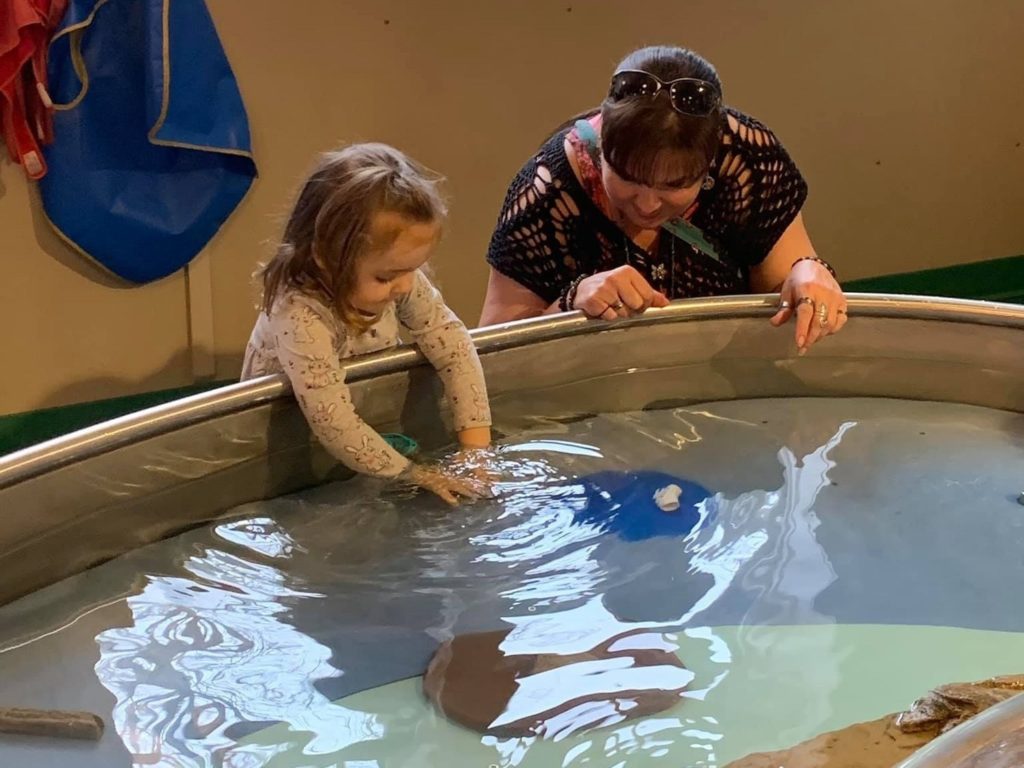
Developmental therapy is offered in the child’s natural environment to improve skills in any area of development, particularly play skills, self help skills, interacting with others and improving attention span.
Feeding Therapy

What is Pediatric Feeding Therapy?
Feeding therapists are speech-language pathologists who are trained to diagnose and manage feeding and swallowing disorders. Our highly trained feeding therapists provide specialized feeding intervention for a wide range of feeding and swallowing challenges. In feeding therapy, the therapist works with the family to determine the feeding and swallowing related challenges and creates goals with the family that supports both the child and the family in their feeding journey.
Why Might My Child Need to See a Feeding Therapist?
Feeding difficulties are often seen in 25% of typically developing children and up to 80% of children with developmental delays.
Your child may have been referred for an oral motor/feeding evaluation secondary to concerns that your child is refusing to eat or has difficulty chewing or swallowing. Frequent concerns that warrant a feeding evaluation are as follows:
- Developmental delay or disability; specific diagnoses
- Chronic diseases or syndromes
- Neurological, respiratory, and metabolic disorders
- Sensory-related conditions or Autism Spectrum
- Limited or poor oral intake
- Slow or inadequate weight gain
- Failure to Thrive
- Difficulty with bottle feeding
- Difficulty chewing certain textures
- Coughing, choking, gagging , or vomiting with liquids or solids
- Oral motor or chewing difficulty
- Oral sensitivity and difficulty with textures
- Difficulty transitioning to table foods
- Frequent refusal to eat or drink
- “Picky” eaters or food refusals
- Fear or anxiety related to eating
During the feeding evaluation, Shine feeding specialists will take a thorough medical and feeding history. Your child will further be observed with a feeding in order to fully assess your child’s oral musculature and feeding skills during a meal. Our experienced feeding team looks at the whole child during the evaluation in order to fully address the feeding concerns. Following the feeding evaluation, feeding therapy may be recommended. Shine therapists are experienced with a range of ages and feeding concerns including infant feedings, transitioning children to an age appropriate diet level, as well as addressing picky feeding. Our feeding team specialists work when necessary with other providers in the area, including our on staff registered dietitian, occupational therapist, physical therapist, pediatric gastroenterologists and a wide range of medical specialists following the evaluation to help families and their children who are struggling to have successful mealtimes.
How To Get Started/Schedule an Appointment
Children who are experiencing any of these signs or symptoms may benefit from a feeding therapy evaluation. Please speak with your pediatrician about your concerns. You may also reach out using the ‘contact us’ link.
Occupational Therapy
What is Pediatric Occupational Therapy?
Occupational Therapy (OT) is a health profession that provides skilled treatment to help individuals achieve and maintain independence in all aspects of their lives. The primary goal of OT is to enable people to participate in the activities of everyday life. Pediatric OT focuses on the child’s independence in their occupations, such as daily living skills, play exploration and participation, education, leisure, social participation, and sleep.
Why Might My Child Need to See an Occupational Therapist?
- Delays in fine motor skills
- Help developing visual motor skills – tracking an object, hand-eye coordination
- Cognitive delays including problem-solving skills, memory, and attention
- Children with sensory integration or body regulation difficulties
- Delays in play and social interaction skills
- Help with learning basic self-care tasks, such as getting dressed
- Difficulty with bilateral coordination/upper extremity coordination
- Behavioral concerns impacting child’s ability to participate in daily activities
- Handwriting difficulties
Fine motor skills: are the ability to make movements using the small muscles in our hands and wrists. These may include:
- Academic skills including: pencil skills (scribbling, coloring, drawing, writing), scissor skills (manipulation/strength for cutting)
- Play: construction skills (using legos, duplos, train tracks), playing with small toy pieces
- Self care: dressing (zips, buttons, tying), eating (manipulating cutlery), opening/closing packages
Visual motor skills: are essential to coordinated and efficient use of the hands and eyes. Visual Motor Skills enable an individual to process information around them including the ability to observe and recognize visual information about forms, shapes, figures, and objects. These may include:
- Academic skills including: writing and cutting
- Play skills including: puzzles, sports (playing catch), stacking blocks, games such as light bright, legos or Jenga, word finds or dot-to-dots
- Self-care including: Pouring liquid from container to container, self-feeding
Sensory processing skills: Children with sensory processing difficulty cannot properly process sensory stimulation from the outside world. The bodies major sensory systems include the following: proprioceptive (body position) input, vestibular (movement) input, auditory (hearing) input, visual (sight) input, tactile (touch) input, gustatory (taste) input. Signs and symptoms of sensory regulation difficulties vary based on the age of the child and the child’s unique sensory response, but may include:
- Either be in constant motion or fatigue easily.
- Withdraw when touched.
- Refuse to eat certain foods because of how the foods feel, taste, smell, or visually appear.
- Be oversensitive to odors.
- Be sensitive to certain fabrics and only wear clothes that are soft or that they find pleasing.
- Dislike getting his or her hands dirty.
- Dislike daily living skills such as nail clipping, hair cutting, hair brushing, or bathing.
- Be uncomfortable with some movements, such as swinging, sliding, or going down ramps or other inclines. Your young child may have trouble learning to climb, go down stairs, or ride an escalator.
- Have difficulty calming after exercise or after becoming upset.
- Jump, swing, and spin excessively.
- Appear clumsy, trip easily, or have poor balance.
- Have odd posture.
- Have difficulty handling small objects such as buttons or snaps.
- Be overly sensitive to sound. Vacuum cleaners, lawn mowers, hair dryers, leaf blowers, or sirens may be upsetting.
- Lack creativity and variety in play. For instance, your child may play with the same toys in the same manner over and over or prefer only to watch TV or videos.
How To Get Started/Schedule an Appointment
Children who are experiencing any of these signs or symptoms may benefit from an occupational therapy evaluation. Please speak with your pediatrician about your concerns and contact us at Shine Therapy Services to learn more information.
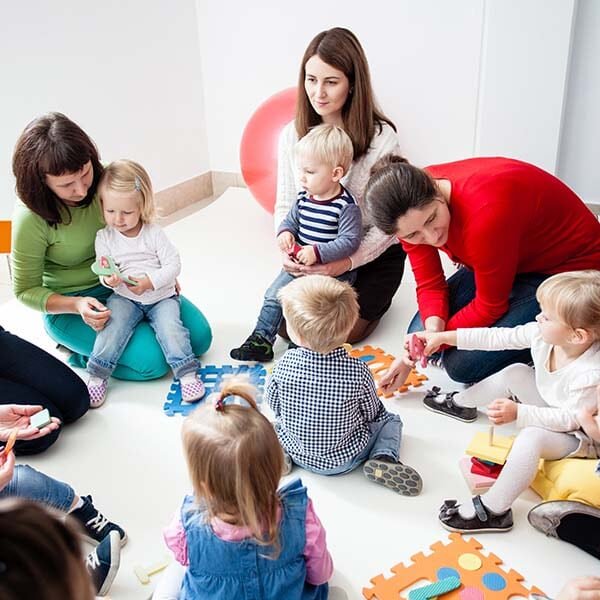
Help My Toddler Talk: A Caregiver-Child Communication Group
A caregiver-child partnered approach that fosters natural connections that lead to effective communication. You will learn how to be your child’s language facilitator! Class meets once/week for 8 weeks, 60-minute sessions, from March 29- May 19. One caregiver per child allowed due to space constraints.
COST: $25/week = $200 for session. Payment below holds your spot in the group.
GROUP MEETS: Tuesdays at 4:45PM or Thursdays at 9 AM
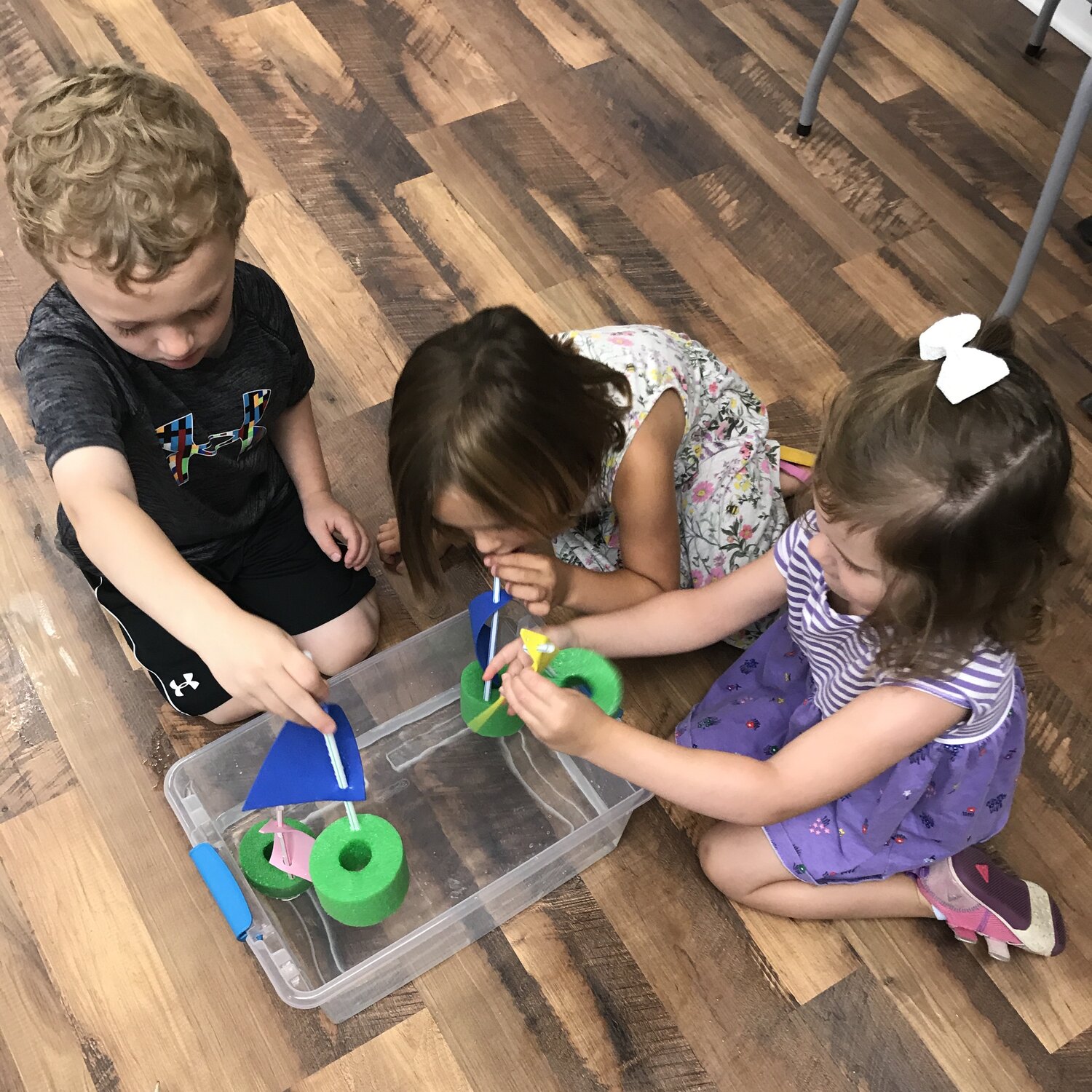
Speech Sprouts: A speech sound group for 3-5 year olds
Is your child’s speech difficult to understand? Would you like them to get some extra speech sound practice this summer, while socializing with their peers? Join us for an 8 week session for extra practice. Class meets once/week for 45 minutes.
COST: $30/week = $240. Payment below holds your spot in the group.
GROUP MEETS: Ages 3-4 Wednesdays at 10:30am.
Ages 4-5 Wednesdays at 4:30 PM
PLAY Project/Autism
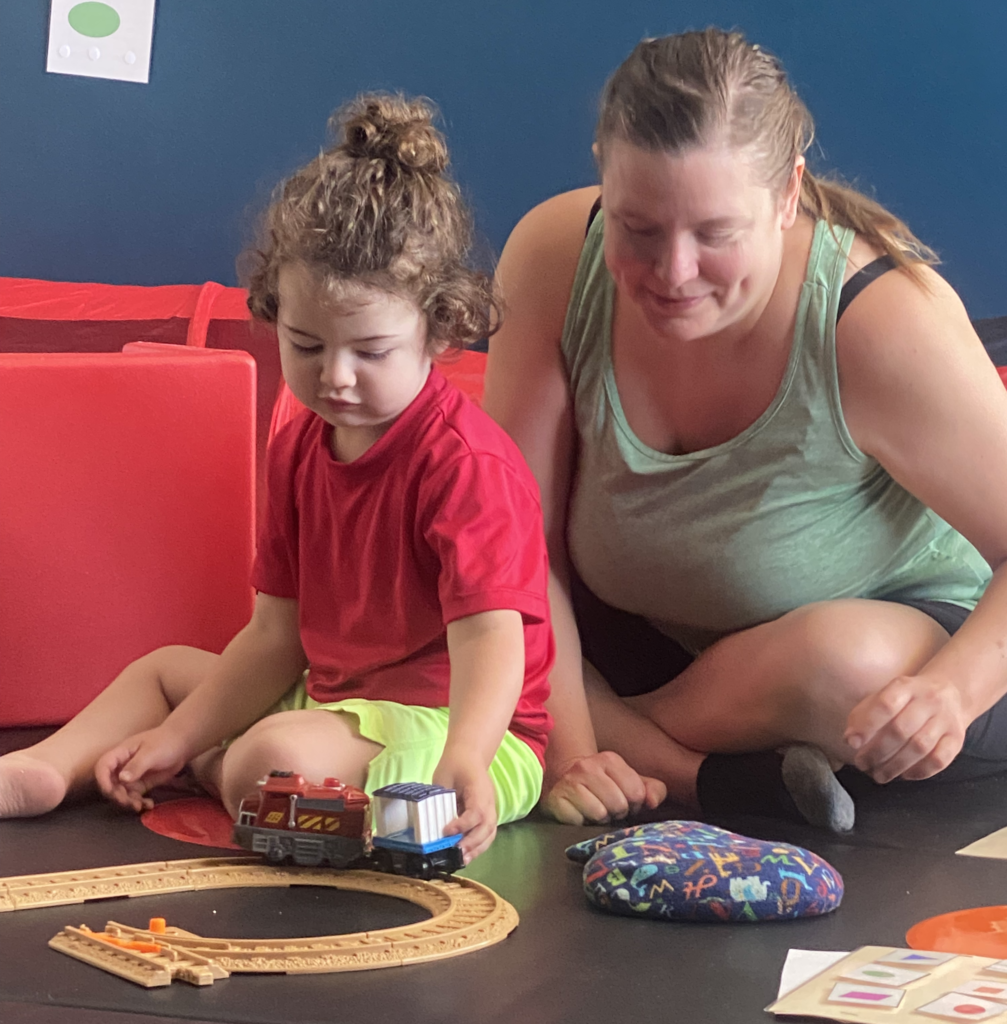
PLAY Project is an evidence-based, home coaching model for families interested in progressing their abilities to engage and progress their Autistic child. The goal is to help parents become their child’s best play partner in order to gain developmental play skills.
Once a family learns the principles, methods, techniques and activities of the PLAY project they can make every interaction throughout the day a good interaction – making this an INTENSIVE intervention!
Service Details:
1) PLAY Project
COST: $400/month with a minimum 6 month commitment
An intensive, in-home program implemented on evidence-based research with a trained and certified PLAY consultant. The purpose of this program is to teach parents to be the best play partner possible with their child to increase engagement, social communication, and participation as they get ready for school. (See Information Sheet for Parents and the PLAY project website for more details)
Includes:
- Evidence based Parent Guide
- Three hours of home visits/month with support in between via phone/email/text/zoom conversations. Visits are different from traditional therapies due to the following:
- Video reviews: includes a deep dive analysis from reviewing clips of sessions to really get a look at what is working and what is needed during PLAY.
- A detailed PLAY Plan: this includes a sensory motor profile, techniques and activities that will work specifically for your child for maximum engagement, along with explanations that are relative to where your child is currently functioning.
**NOTE: this program is an intensive-evidence based program that entails the PLAY consultant to spend 3-4 hours of work per month specifically on the analysis and review that is found within the PLAY plan. Therapists are trained to really look into the child’s overall functioning with all areas considered to maximize potential.
2) Developmental Therapy Home Visits with use of PLAY strategies/approach
Cost: $80 per session
Includes:
- Monthly to weekly 50 minute sessions (determined by need, availability and scheduling)
- Direct service provided to your child with strategies, suggestions, and activities recommended to continue growth of functional developmental skills.
If you are considering PLAY Project for your child, but aren’t quite sure…start with a PLAY Project Evaluation. Contact Us to schedule!
Physical Therapy
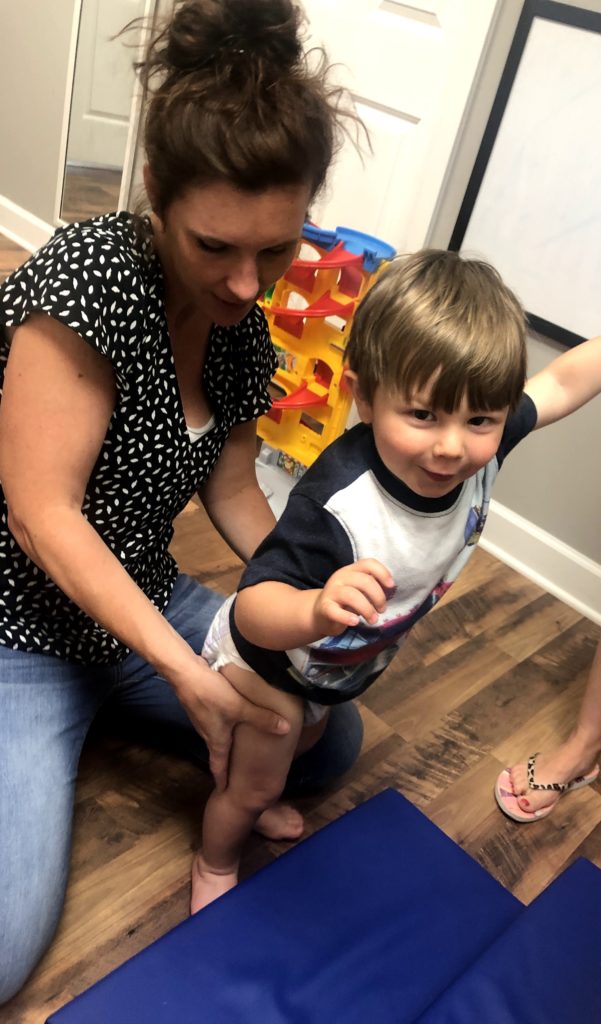
What is Pediatric Physical Therapy?
Pediatric Physical Therapy is provided by a licensed Physical Therapist who is trained to provide skilled treatment to help kids improve their flexibility, strength, movement patterns, balance and coordination. The primary goal of PT is to help children move their bodies how and when they want to the best of their abilities so that they can more independently access and explore their environment.
Why Might My Child Need to see a Physical Therapist?
Physical Therapists are experts in movement and gross motor development. Gross motor skills are those which require whole body movement and which involve the large (core stabilizing) muscles of the body to perform everyday functions, such as sitting upright, standing, walking, running and jumping. They also include eye-hand coordination skills such as ball skills (throwing, catching, kicking) as well as riding a bike or a scooter and swimming. Physical therapists work with children with a wide variety of diagnoses including, but not limited to:
- Gross motor developmental delays, such as a child that is not yet walking
- Genetic Disorders (eg. Down Syndrome)
- Neurological Disorders (eg. Cerebral Palsy, Traumatic Brain Injuries, seizure disorder)
- Spina Bifida
- Torticollis and/or plagiocephaly
- Hypotonia – Toe walking or other gait abnormalities (e.g. in-toeing)
- Poor balance/frequent falling
- Poor motor planning/impaired coordination
- Can assess a child’s need for Orthotics and Adaptive Equipment
How To Get Started/Schedule an Appointment
Children who are experiencing any of these signs or symptoms may benefit from a physical therapy evaluation. Please speak with your pediatrician about your concerns. You may also reach out using the ‘contact us’ link or emailing us (office@shinetherapyservices.com) to make a referral.
It’s time for your child to thrive!
Complete the quiz to see if your child could benefit from our services.
2. Schedule an appointment.
Meet with us to find out how you can best help your child.
3. Help your child grow!
Get the right guidance and watch your child thrive.
